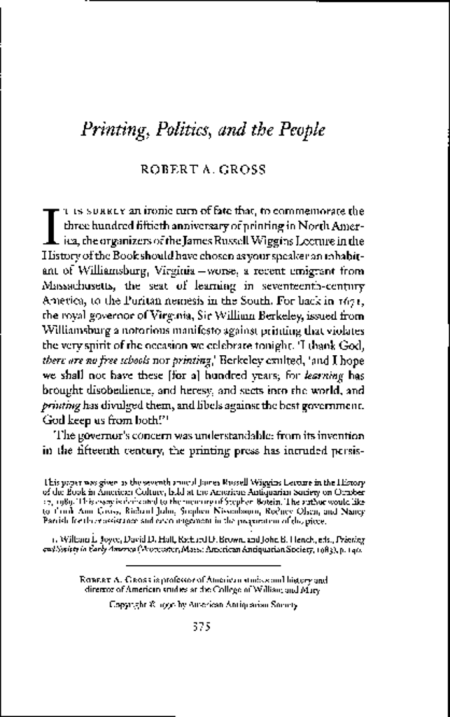Examines the connections between printing and its role in the emergence of a politically active American public and argues that from the outset the printing press was political. The current disjunction between culture and power did not exist in 17th-century Massachusetts or in the Jacksonian period, two periods of intense political discourse. Printing was used both to defend and to attack orthodoxy and reflected the ideological currents of the day. By the time of Andrew Jackson, printing and politics fed on one another. Only in more recent decades have popular and high culture become divorced, not only in intellectual life but in political and public circles as well.
Publication Date
Volume
99
Part
2
Page Range
375-397
Proceedings Genre
